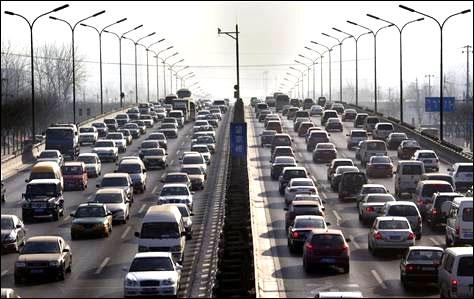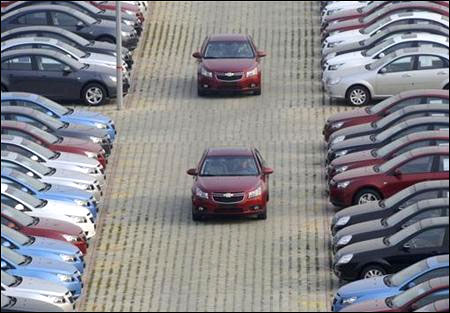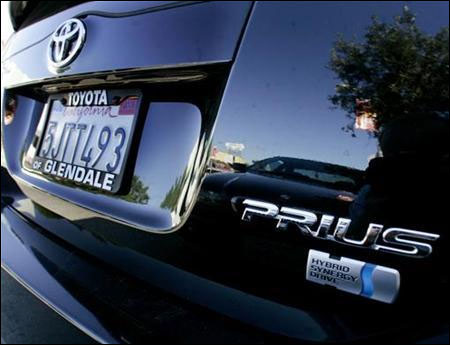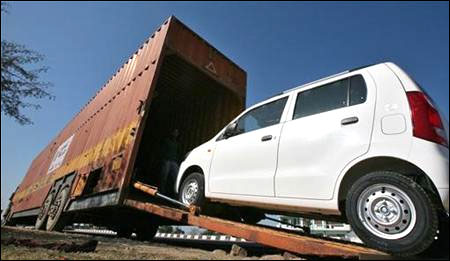 | « Back to article | Print this article |
New auto policy will ensure safety of passengers
Society of Indian Automobile Manufacturers (SIAM), however, said it would assess the need for a mandatory policy if the government decides to frame one, although it would not oppose such a move.
"This policy is a consensus of all the members and is yet another initiative towards our commitment to growth with responsibility," SIAM president S Sandilya told reporters.
Under the policy, which is applicable for all manufacturers, from two-wheelers to commercial vehicles, if a company is of the opinion that there is a manufacturing defect that compromises safety of vehicles, it will voluntarily rectify the problem free of cost to the customer.
Click on NEXT for more...
New auto policy will ensure safety of passengers
Only vehicles within seven years of manufacture would be covered under the safety recall and companies are required to post information regarding recall on their websites.
SIAM has left it to individual members to decide on the minimum number of vehicles affected to constitute a recall and also whether to announce such an exercise or not.
Sandilya, however, said the policy has recommended government intervention in case of violation.
"In case a manufacturer fails to announce a recall where clear evidence is available as per recall definition and guidelines, then the government of India/ministry may issue appropriate directions to the vehicle manufacturers for such violation," the policy said.
When asked if SIAM would support a mandatory recall policy from the government, Sandilya said: "A voluntary code for recall is good enough. While we have nothing against a mandatory recall policy if the government decides to put one, we will definitely assess if there is a need for it."
Click on NEXT for more...
New auto policy will ensure safety of passengers
He also said it was only in the US that a mandatory recall policy is followed, while in other places like Europe, Japan and Australia it is up to the manufacturers to announce a recall.
Asked why no punishment has been suggested in the policy, Sandilya said: "Penalties should be considered only when a company knowingly doesn't recall despite safety issues. It should be done only in case of non-compliance."
As such, companies suffer in the market in terms of brand equity when they don't take up such step. The major punishment is that it loses its brand image, he added.
Sandilya also said SIAM had consulted respective ministries while framing the policy "and there hasn't been any difference of opinion" with the government.
SIAM's policy comes in the wake of increasing number of recalls in the recent past by different manufacturers.]
Click on NEXT for more...
New auto policy will ensure safety of passengers
Last year, Toyota Kirloskar Motor announced recall of 41,000 units of its Etios sedan and Liva small car in India to replace a faulty inlet pipe to the fuel tank.
Similarly, Honda Siel Cars India had also recalled 72,115 units of its flagship mid-sized City sedan to replace defective power window switches.
While not terming it as a recall, Tata Motors had also replaced starter motor in an estimated 1.40 lakh Nano free-of-cost last December.
Car market leader Maruti Suzuki India's recall of one lakh units of its A-Star hatchback in 2009 to replace a fuel pump gasket to check possible fuel leakage was the biggest.
Under the policy, SIAM has also recommended the government to strengthen registration of vehicle in India so that correct information of vehicle owners, of primary and secondary owners, could be established to improve recall penetration.



